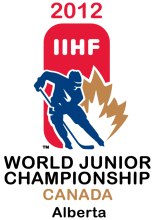CALGARY – Considering the historical dominance of Sweden and Russia in European hockey, it’s remarkable that Thursday’s gold medal game represents the first World Junior final ever between these two nations.
On three occasions, Russia (then the Soviet Union) finished in first place, with Sweden settling for second: 1978, 1989, and 1992. When Sweden captured its lone World Junior gold in 1981, the Soviets were third. But all that was under the old round-robin system.
Of course, considering the IIHF only adopted the playoff format for this tournament in 1996, it’s pretty easy to explain why Sweden and Russia haven’t clashed in the final before. Since ‘96, Canada has made the gold medal game on 13 out of a possible 16 occasions, including the last 10, plus all five previous times it’s hosted.
Yet while players and fans sporting the red Maple Leaf are still contemplating what went wrong this year, Sweden and Russia are looking for gold, starting at the Saddledome at 18:00.
“I think the Swedes are like us,” said Russian head coach Valeri Bragin. “In a final the chances are always fifty-fifty. They can desire. We can desire. The game will show who’s strongest.”
It is the chance of a lifetime for these young players.
It is a chance for Sweden to prove that its U20 squad can come up big in a big-time game, and to lay to rest the irritating, persistent question: “How is it possible that Tre Kronor has won the World Juniors just once?”
It is a chance for the Russians to claim their second world title in a row – which would be the first time they’ve accomplished that feat since 2003 – and, in doing so, to pay tribute indirectly to Danil Sobchenko and Yuri Urychev, members of the 2011 Buffalo team who lost their lives in the tragic Lokomotiv Yaroslavl plane crash in September.
It is also a chance for World Junior immortality for Russian captain and tournament scoring leader Yevgeni Kuznetsov. During this tournament, fans in Calgary have booed the post-whistle antics of the 19-year-old Traktor Chelyabinsk forward, but have also learned to respect his ability to take over a game singlehandedly with his talent.
Alternatively, Sweden’s Max Friberg could seize the chance to define himself as one of the great character players in tournament history.
The Timra winger has done it all for his team here. Scoring four goals on Latvia, riding his stick down the ice after succeeding in the shootout versus Switzerland, notching the tying goal and setting up the 4-3 overtime winner against Russia in round-robin play, banging in the late equalizer versus Finland in the semis...does this kid with the impish sense of humor ever stop?
There are so many wonderfully skilled players on both sides.
It has been a pleasure to watch Nail Yakupov showing that he can set up goals much as he scores them with the OHL’s Sarnia Sting. To admire the puckhandling abilities of every guy named Nikita in a Russian jersey. To see the Russian defence bearing down in its own zone and moving the puck out with grace.
The Swedes have brought a total team game. You have to admire the dominance of captain Johan Larsson and Rickard Rakell in the faceoff circle. The Brett Hull-style one-timers of Mika Zibanejad. The offensive confidence and poise of Sebastian Collberg at age 17. The “tower of power” performance by Oscar Klefbom on the Swedish blueline, tied for the tournament’s second-best plus-minus at +8.
“For sure, the comeback against Russia gave us confidence,” said Zibanejad. “We are a very tough team to play against for 60 minutes,” added Collberg.
Can the Swedes carry that mentality over into one more never-say-die outing?
Statistically, Russia looks to have the edge. And we’re talking about today’s game, not Sweden’s all-time record of 11 wins, 21 losses, and 3 ties in 35 WJC meetings with Russia (including the Soviet period).
The Russians appear to have the edge in goal, with a cumulative save percentage of 95.6 and GAA of 1.81, compared to Sweden’s 87.6 and 2.46. Both teams have outstanding power plays, Russia’s clicking at nearly 39 percent and Sweden’s at 31. But the Russians have been far better on the penalty kill than Tre Kronor (92.6 percent versus 72 percent). They’ll just have to be more disciplined than they were at times versus Canada in the semis.
We’re talking about a one-game scenario. The outcome of this battle is tough to predict. But if the final is high-scoring, then Russia is likely in the driver’s seat. If it’s a tight affair, the advantage just may go to Sweden.
Here’s hoping hockey fans around the world witness another classic.
LUCAS AYKROYD |







